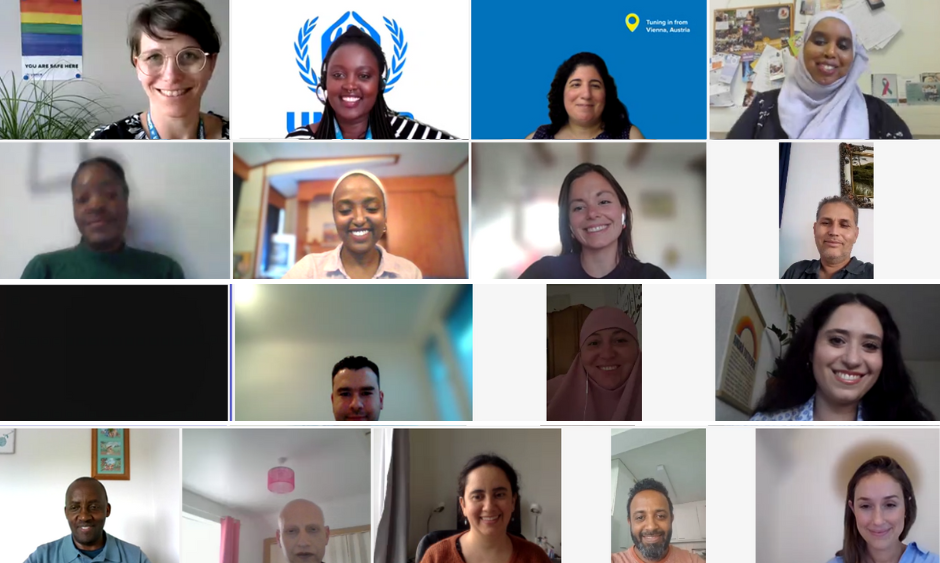Irish Human Rights and Equality Commission and UNHCR call for government to facilitate family reunification for refugees
Irish Human Rights and Equality Commission and UNHCR call for government to facilitate family reunification for refugees
New rules introduced in 2016 have made it harder for refugees to unite with their family members, according to the Irish Human Rights and Equality Commission and UNHCR, the UN Refugee Agency.
Speaking at a joint event today, both organisations have set out that the more restrictive measures in the International Protection Act 2015 mean that for some refugees the hope of bringing loved ones to Ireland remains out of reach.
Sinéad Gibney, Chief Commissioner of the Irish Human Rights and Equality Commission stated:
“The International Protection Act is a retrogressive law, which simply fails to reflect the lived reality of family ties, relationships and support networks that exist in practice.
“It is important that we take stock of its operation since 2016 to consider what changes are needed to better realise that right of refugees to family reunification – a right that is core to enabling those who have fled persecution to resume a positive and fulfilling life here in Ireland."
Reuniting families separated by conflict remains an important safe and legal pathway to support family members, especially women and children, who may otherwise have to undertake dangerous journeys to join those they love.
“During the pandemic, many of us have experienced the pain of being separated from our loved ones for the first time”, said UNHCR’s Head of Office, Enda O’Neill. “For many refugees, it can take years before they see their families again. Family reunification guarantees them the same fundamental and essential right we may have until recently taken for granted.”
However, UNHCR said that receiving a positive grant is only the first hurdle in reuniting families. Managing the complicated logistics and onerous costs of travel from war zones and remote areas can post significant challenges. In launching their report today, “Realising Family Reunification”, UNHCR called for the government to implement a number of measures aimed at supporting refugees who wish to be reunited with their families. The measures proposed included the waiving of administrative fees, issuing single-use travel documents and establishing a low-cost loan scheme as operated in other countries.
“At a time when an increasing number of people around the world are forced to flee their homes due to conflict and persecution, ensuring the right of family unity for refugees is a minimum standard we should all aim for”, said O'Neill. “Not only will it prevent people from taking desperate journeys, it will also set refugees on the path to rebuilding their new lives here.”
For interviews, please contact:
Jody Clarke, UNHCR at [email protected] or 087 9893461
Brian Dawson, IHREC at [email protected] or 087 0697095
Notes for Editors
The conference, Families Together: Reunification for refugees in Ireland, was organised by UNHCR, the UN Refugee Agency and the Irish Human Rights and Equality Commission. Speakers addressed the administrative, legal, financial and logistical challenges that refugees face in bringing families to Ireland.
The right to family unity is a minimum human rights standard, reflected in the text of the Universal Declaration of Human Rights and by the final conference which adopted the 1951 Refugee Convention.
Prior to the International Act, 2015, refugees could apply for family members, including grandparents, parents, brothers and sisters who were financially dependent on them to come to Ireland. However, the Act significant narrowed the people who refugees could apply to be reunited with to the following categories:
- For adults: (i) his/her spouse or civil partner, providing the marriage or civil partnership was in force when he/she applied for international protection; (ii) his/her child, as long as they are under the age of 18 and unmarried at the time he/she applied for international protection.
- For children: his/her parents and brothers and sisters provided they are under the age of 18 and unmarried.
In the Oireachtas, a Private Members Bill has sought to reverse the changes introduced by the new law, the International Protection (Family Reunification) (Amendment) Bill 2017 (No. 101 of 2017). Although the Bill remains on the Order Paper of the 33rd Dáil, as a Bill that would incur charges on public funds, it cannot proceed further without the consent of the government, which has not been forthcoming.





